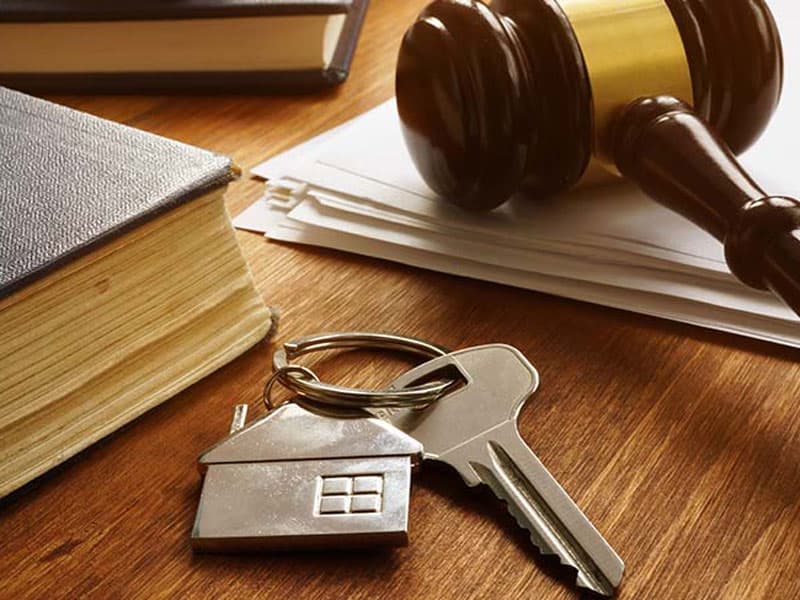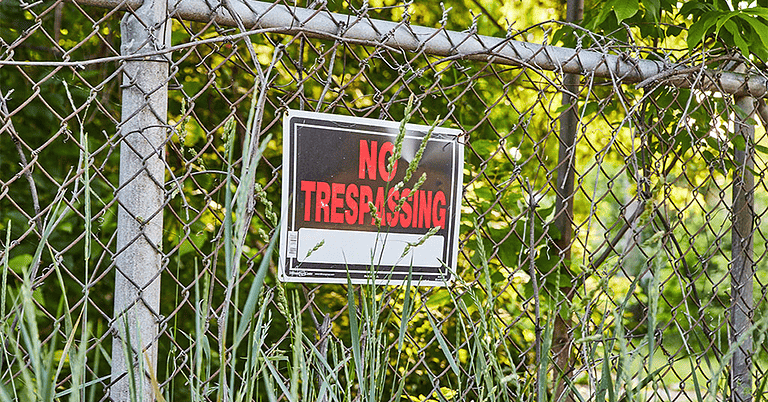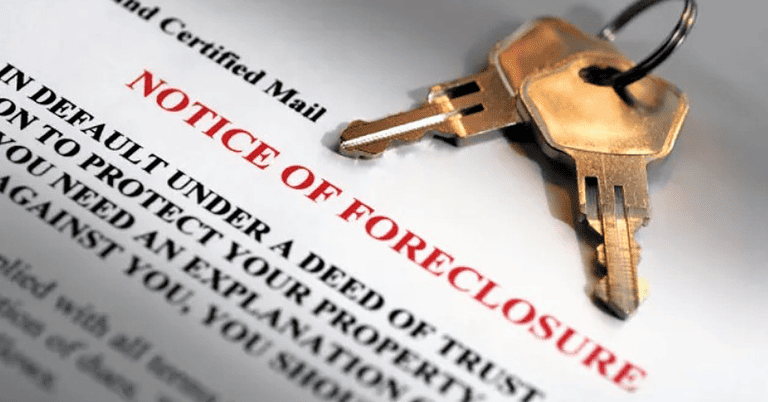Why Are HOAs Legal
Are you curious about why HOAs are legal? Well, you’ve come to the right place. In this article, we’ll explore the reasons behind the legality of Homeowner Associations and delve into their role in residential developments.
By understanding the ins and outs of HOAs, you’ll gain insight into how they enforce governing documents, manage neighborhoods, and impact your daily life as a homeowner. So let’s dive in and uncover the secrets behind HOA legality. (Read Why Are HOA Fees So High)

A Brief Introduction to HOAs
Are you curious about homeowner associations (HOAs) and their role in communities?
This discussion will explore what an HOA is and its purpose within a community. We will also discuss the importance of governing documents that define the rules and restrictions. Additionally, we will look at the roles and responsibilities of homeowners within an HOA community.
What is an HOA?
An HOA, or homeowner association, is a private association that manages and sells homes in residential subdivisions. HOAs are legal entities governed by state statutes and regulations. They can enforce their rules and regulations on homeowners within their jurisdiction.
The legality of HOAs stems from the contractual agreements between homeowners and the association when purchasing a property. These agreements are recorded in the county’s property records, establishing the obligations and responsibilities that homeowners are required to pay.
The purpose of HOAs in a community
Discover how homeowner associations play a vital role in maintaining and improving the community you call home.
Homeowner associations (HOAs) are legal entities that enforce rules and regulations to protect property values and promote a harmonious living environment.
HOAs have the authority to establish and enforce governing documents, such as articles of incorporation and bylaws, which outline guidelines for residents’ behavior, architectural standards, and community amenities.
Defining HOA governing documents
Please take a moment to familiarize yourself with the governing documents of your homeowner association, as they outline the rules and regulations that govern your community.
These documents, such as the articles of incorporation and bylaws, give the HOA the power to enforce rules and compliance.
They also establish the board of directors who oversee the operations of the HOA.
Additionally, these documents address essential matters like HOA fees and your obligation to abide by the rules set forth by joining the HOA. (Learn How To Get Around HOA Rental Restrictions)
Roles of homeowners in an HOA community
Homeowners play an active role in their HOA community’s management and decision-making processes. Their involvement varies from state to state and depends on whether the HOA is mandatory or voluntary.
Being part of an HOA means homeowners are legally obligated to pay monthly HOA fees. Failure to do so can result in a lien on the property.
Homeowners may also have input in choosing an HOA management company to handle day-to-day operations.

The Legality of HOAs Explained
Have you ever wondered why homeowner associations (HOAs) are legal? This discussion will explore the reasons behind their legality and the connection between HOAs and state laws.
Understanding the authority of an HOA board is crucial in comprehending how these associations operate within their communities. Additionally, we will investigate whether HOAs have too much power and examine the potential implications of their authority.
Why are HOAs legal?
Some laws and regulations allow for the legal existence of homeowner associations (HOAs). HOAs have the authority to enforce rules and bylaws within their communities. They can require homeowners to pay fees, fine them for violations, and even foreclose on their properties if necessary.
The power of HOAs varies from state to state, with some granting more authority than others. Sometimes, HOA boards may take legal action and sue the association.
The connection between HOAs and state laws
State laws play a crucial role in defining the authority and limitations of homeowner associations (HOAs). When joining an HOA, you must familiarize yourself with the state laws that govern them. These laws outline the powers and responsibilities of the HOA board and the rules they may enforce on property owners.
State law also dictates how HOA charges are determined and collected. To better understand your rights and obligations as a member, consult accurate property records and review the specific state statutes that apply to your HOA.
Understanding the authority of an HOA board
Understanding the authority of an HOA board is essential for homeowners to navigate the rules and regulations.
As a legal entity, the association board has the power to enforce bylaws and collect association fees from members. While HOAs cannot force you to pay without following proper procedures, they may impose fines or take legal action if payments are not made.
It’s essential to familiarize yourself with the authority of the HOA board and its ability to govern the community.
Are HOAs too powerful?
Now let’s explore the question: Are HOAs too powerful?
The power of an HOA can vary from state to state and depends on the specific governing documents of each community association. As an association member, you must familiarize yourself with the legal information surrounding homeowner associations.
Remember that HOA managers must operate within the boundaries of state laws, including regulations such as the Fair Housing Act.
Understanding your rights and responsibilities within a homeowner association is crucial for maintaining a harmonious living environment.

Navigating HOA Fees and Fines
HOA fees are regular payments made by homeowners to the homeowner association. These fees cover various expenses such as maintenance of common areas, insurance, utilities, and administrative costs.
Additionally, HOAs can impose fines on homeowners for violating community rules and regulations. Homeowners must understand these fees and potential penalties before purchasing a property in an HOA-governed community.
Moreover, special assessments may be imposed by HOAs to cover unexpected expenses or major repairs that exceed the funds available in the reserve account. However, there may be limits on how much HOAs can charge for these assessments, which vary depending on state laws and the governing documents of each specific HOA. (Read Can HOA Force You To Keep Garbage Cans In Garage)
What are HOA fees, and what do they cover?
HOA fees are payments made by homeowners to cover the costs of maintaining common areas and amenities. These fees are legal and required by homeowner associations (HOAs).
HOA fees typically cover expenses related to landscaping, maintenance, repairs, insurance, and management of shared facilities. The Community Association Institute defines HOAs as common interest communities that enforce community rules impose fines, and provide association management services.
These fees ensure that the community remains well-maintained and enhances property values for all homeowners.
Can HOAs impose fines on homeowners?
Homeowners may be subject to fines imposed by their homeowner association (HOA) for violating community rules and regulations. The ability of HOAs to force you to pay fines varies from state to state and HOA to HOA.
Board members are typically responsible for enforcing the association’s rules, which may include imposing fines. Sometimes, HOAs may implement special assessments to cover unexpected expenses or maintenance costs.
Homeowners need to familiarize themselves with HOA rules and regulations to avoid potential fines.
Understanding the concept of a special assessment
To better understand the concept of a special assessment, you should know that the association imposes an additional fee to cover unexpected expenses or significant repairs. Special assessments are legal for HOAs and are commonly used when there is a financial shortfall. While some states prohibit HOAs from imposing special assessments without prior approval, many still allow them.
Review your association’s governing documents and consult property records to determine if your HOA has the authority to impose special assessments. The association must follow legal procedures and provide proper notice to homeowners before implementing a particular review. In some cases, management companies may assist with collecting and administrating these fees.
Are there limits on how much HOAs can charge?
There are restrictions in place that limit how much an HOA can charge for fees and assessments. While HOAs have the authority to set prices, they must comply with state laws and regulations.
However, it’s important to note that HOAs cannot force you to pay fees if you haven’t bought a home within the HOA. Many HOAs have specific guidelines regarding fees and assessments, but ultimately, an HOA cannot impose charges outside of what is legally permitted.

Understanding and Abiding by HOA Rules
When living in a neighborhood with a homeowner association (HOA), you must familiarize yourself with the general rules and regulations governing the community. These rules cover various aspects, such as architectural guidelines, landscaping requirements, noise restrictions, and pet policies.
Failure to abide by these rules can result in fines or legal action. HOAs enforce their laws through various methods, including warnings, penalties, and litigation if necessary.
While homeowners cannot be forced to join an HOA in voluntary associations, mandatory HOAs require homeowners to become members and comply with the association’s rules and regulations.
What are the general rules and regulations of an HOA?
It would be best to familiarize yourself with an HOA’s general rules and regulations to understand what is expected of you as a homeowner.
In an HOA community, homeowners must abide by the guidelines set forth by the association. These rules may cover various aspects, such as property maintenance, noise restrictions, and architectural guidelines.
It’s important to note that specific regulations may vary depending on the state and type of association, such as a condominium association governed by California law. (Learn How To Circulate Heat From Pellet Stove In Basement)
The consequences of not abiding by the association’s rules
Not abiding by the association’s regulations can result in penalties and potential legal action.
Homeowner associations (HOAs) can enforce their rules and regulations, typically outlined in the governing documents, such as the Covenants, Conditions, and Restrictions (CCRs).
Violations of these rules may lead to fines, suspension of privileges, or even a lawsuit.
Familiarizing yourself with and complying with the HOA’s rules to avoid negative consequences is essential.
How do HOAs enforce their rules?
HOAs typically enforce their rules through penalties and potential legal action if violations occur. Penalties can include fines, warnings, or restrictions on amenities. In some cases, HOAs may also have the authority to place property liens or initiate foreclosure proceedings.
Legal action can be taken to ensure compliance with the rules and protect property values within the community. Homeowners must understand and abide by the HOA rules to avoid these consequences.
Can HOAs force homeowners to join the association?
Let’s explore whether HOAs can force homeowners to join the association.
It is important to note that in neighborhoods with mandatory HOAs, homeowners have no choice but to join. They are required to sign documents agreeing to abide by the HOA’s rules.
In contrast, voluntary HOAs allow homeowners the option to join or not. However, opting out of a voluntary HOA means forfeiting access to facilities supported by HOA fees.

Challenges and Benefits of Living in an HOA Community
Are you a homeowner hesitant to join a homeowner association (HOA)? There are several reasons why some homeowners resist joining HOAs. Concerns about loss of autonomy and disagreements with the rules and regulations are expected. However, it’s essential to recognize that HOAs can contribute to property value and quality of life. These include maintaining common areas and amenities.
Navigating and negotiating with your HOA is crucial for a harmonious living experience. However, in cases where disagreements arise, it’s essential to know the steps to take to address them effectively.
Why do some homeowners resist joining HOAs?
Some homeowners may resist joining HOAs due to concerns about the restrictions and rules that come with membership. They worry about limitations on exterior modifications, such as paint colors, and the potential loss of personal freedoms. Others may feel that HOA fees are too high or unnecessary for their lifestyle.
Additionally, some homeowners prefer more control over their property without interference from an association. It is essential for individuals to carefully consider these factors before deciding whether or not to join an HOA.
Contributions of HOAs to property value and quality of life
If you’re considering joining an HOA, it’s essential to understand that they can contribute to the value of your property and enhance your quality of life.
HOAs often maintain common areas, such as parks or pools, which can attract potential buyers and increase property values.
They also enforce rules that help maintain a clean and well-maintained community.
Additionally, HOAs may provide amenities like fitness centers or social events that can enhance your overall quality of life within the neighborhood.
Learn to navigate and negotiate with your HOA.
When navigating and negotiating with your HOA, it’s essential to familiarize yourself with the rules and regulations to have a successful partnership. Take the time to understand the homeowner association covenants, conditions, and restrictions (CCRs) that govern your community.
These CCRs cover aspects such as siding, parking, fencing, etc. Ensure you obtain a copy of the CCRs from your real estate agent or the HOA itself.
Understanding these rules will help you make informed decisions about living within an HOA community.
Steps to take when you disagree with your HOA
Review the association’s governing documents and bylaws to address disagreements with your HOA to understand your rights and obligations.
Familiarize yourself with the rules and regulations that govern the community.
If you disagree or dispute, communicate your concerns to the HOA board.
Provide evidence or documentation to support your position and be open to constructive dialogue.
It may also be helpful to seek legal advice or mediation if necessary.
Conclusion
In conclusion, HOAs are legal entities that manage and sell homes in residential subdivisions. They are crucial in enforcing governing documents and making decisions about urban planning, zoning, and land use.
While the historical development of HOAs had discriminatory provisions, these were ruled unenforceable in 1948. Today, there are over 351,000 HOAs in the United States, overseeing a significant portion of owner-occupied homes.
Living in an HOA community comes with both challenges and benefits, but ultimately it is up to individuals to decide if it aligns with their preferences and lifestyle.







